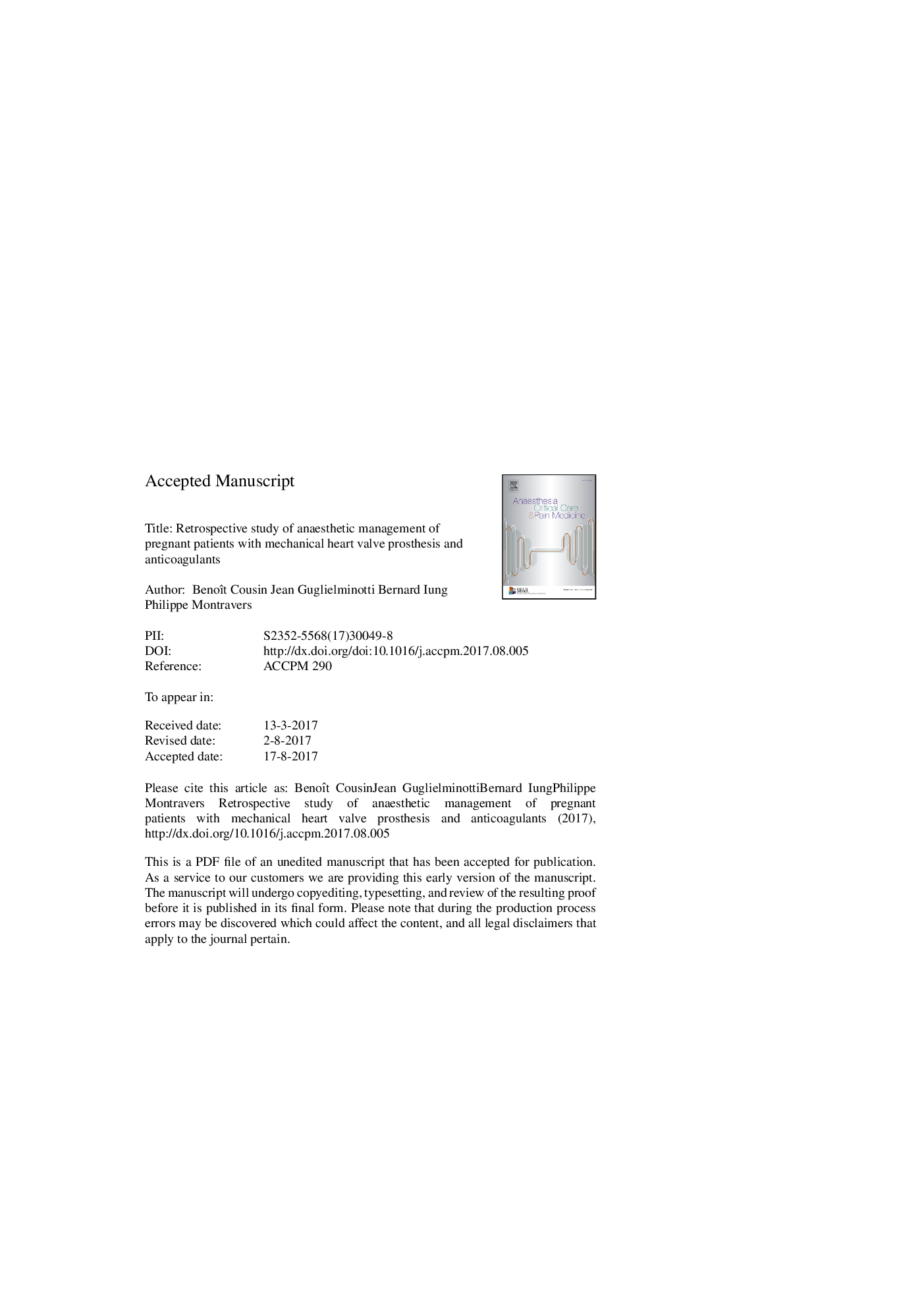| Article ID | Journal | Published Year | Pages | File Type |
|---|---|---|---|---|
| 8608913 | Anaesthesia Critical Care & Pain Medicine | 2018 | 23 Pages |
Abstract
Pregnancies among patients with a mechanical prosthetic valve and receiving anticoagulant medication are rare. Informations about their anesthetic management is poor. The objective of this study was to investigate the anaesthetic management of these patients in a reference medical centre as well as to identify possible ways for improvement. To this aim, the medical records of patients with a mechanical heart valve prosthesis having given birth at our center were analysed. In particular, the characteristics of patients and deliveries, the management of anticoagulation, as well as the type of anaesthesia performed, were collected and analysed. Eighteen cases were studied and compared to 36 controls. All studied cases were being administered anticoagulants. Five of these 8 patients delivered vaginally, one with epidural analgesia. Three of them have had a caesarean during labor, all under general anaesthesia. During the anticoagulation window, the teams had to perform an epidural in 3 (37%) of these 8 patients. Ten cases (55%) had a planned caesarean delivery, all performed under general anaesthesia. The anticoagulation interruption allowed spinal anaesthesia for 4 out of 10 caesarean delivery. The reoperation rate for secondary haemorrhage was significantly higher (PÂ =Â 0.0032) and the duration of the hospitalisation was extended (PÂ <Â 0.001). A context of anticoagulant overdose was identified in 60% of the bleeding cases. Progress can be made in the anaesthetic management of those patients by optimising the use of neuraxial anaesthesia and by improving the management of bleeding risk after delivery.
Related Topics
Health Sciences
Medicine and Dentistry
Anesthesiology and Pain Medicine
Authors
Benoît Cousin, Jean Guglielminotti, Bernard Iung, Philippe Montravers,
